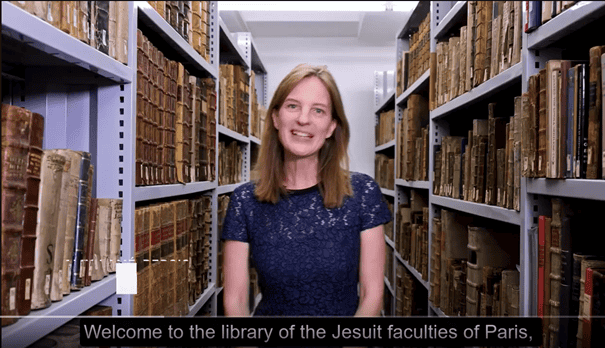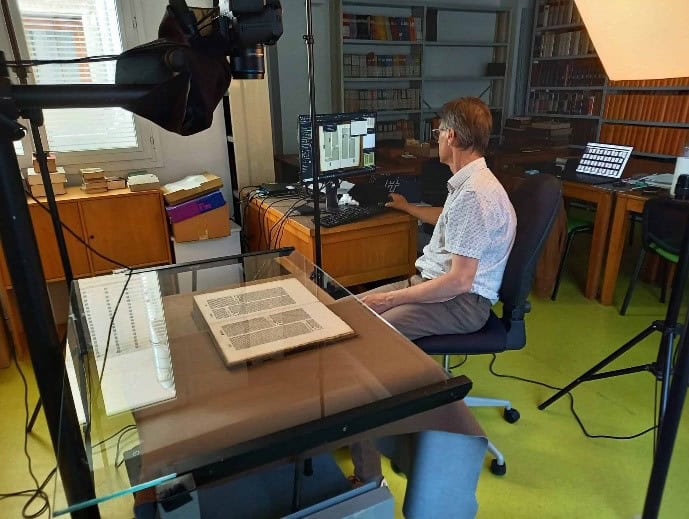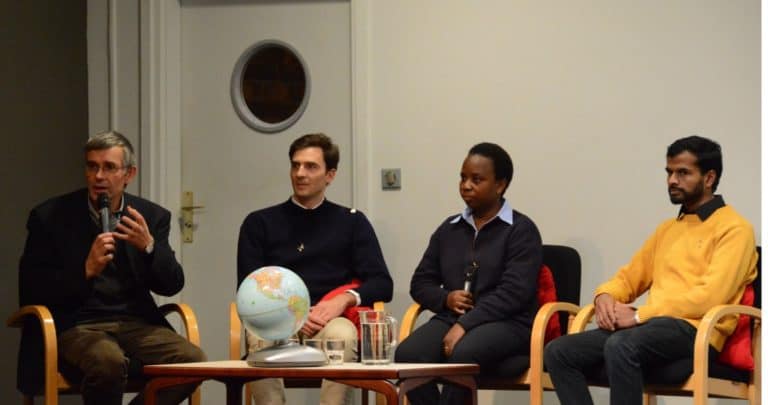The medieval treasures of the Jesuit library in France reveal their secrets…
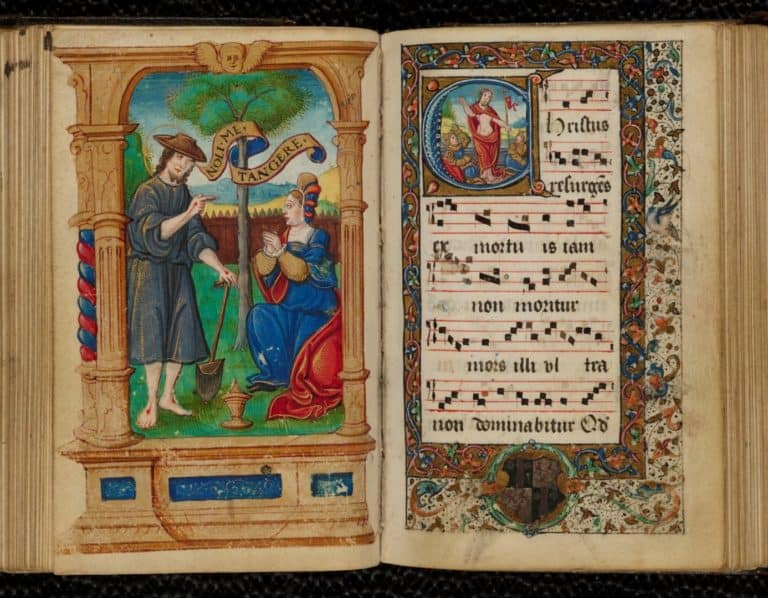
visuals : Heures à usage de Rennes and Processional. Dominicaines, 15th century manuscripts
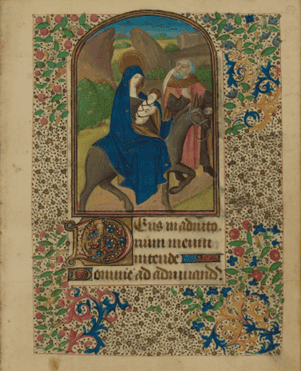
- The largest private collection in theology and philosophy
Today, the Loyola Paris Faculties Library holds over 440,000 works, not including a deposit of 500,000 works at the Municipal Library of Lyon. Today, it is the largest private collection in theology and philosophy. It includes both recent works and over 40,000 older works.
In order to preserve this heritage for future generations and to give the public access to these precious resources, a digitization project has begun, in a multi-stage process.
See the interview with Alix Lamé-Bergis, Library Director
- Precision work, carried out with expert partners
The first stage began with IRHT, an entity of The National Centre for Scientific Research (CNRS), to digitize medieval manuscripts and incunabula enhanced in color. The extreme fragility of the works and the artistic quality of the illuminations required the intervention of specialists, equipped with high-quality equipment dedicated to this type of work.
These beautiful works are now digitized and accessible to all on the virtual library of medieval manuscripts and on the catalog of the Loyola Paris Faculties Library. Internet users can explore these exceptional pages, zoom in on illumination details, download and share them.
Second Phase with the French national Library (BnF) A second project is underway with the French national Library (BnF), for which the Loyola Paris Faculties are seeking funding. The generosity of patrons will be essential to enable the library to complete this project.
Become a patron: By making a donation, you become a patron of the library and help make these treasures of cultural heritage accessible to the public and to future generations.

